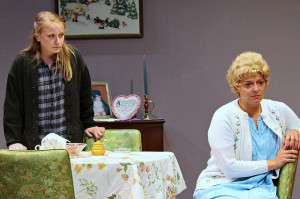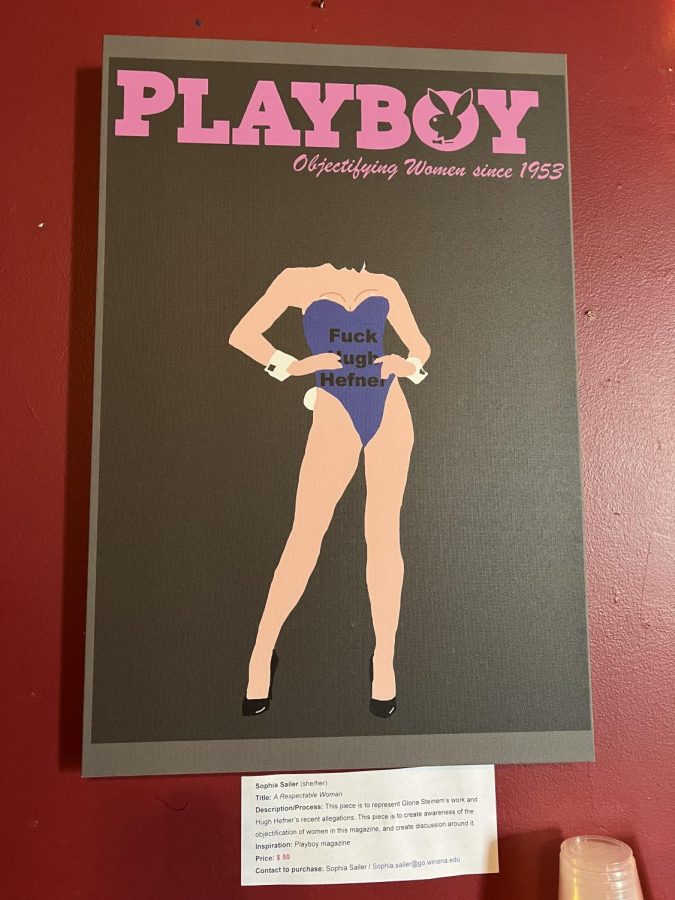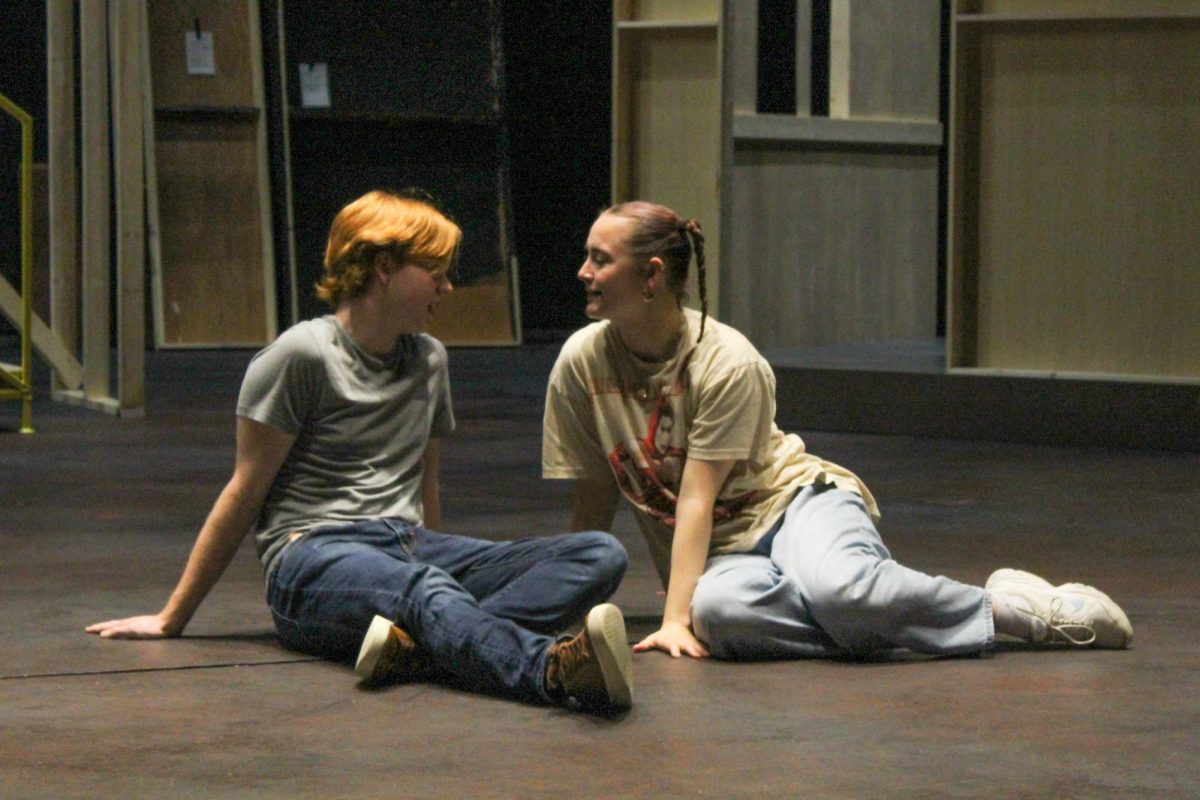
“’Night, Mother” in the PAC’s Black Box Theatre.
MOLLY O’CONNOR
Hannah Jones/Winonan
All was dark and still in the Black Box stage in Winona State University’s Performing Arts Center. The house was nearly full for Friday night’s performance of “’Night, Mother,” directed by Jim Williams and starring senior Lily Roe and theatre faculty member Heather Williams.
Students and other community members filled the risers. An hour and a half ago, they had been chatting and laughing amongst themselves, but in that moment, none of them made a sound.
“’Night, Mother,” a Pulitzer Prize-winning play by Marsha Norman, is a controversial piece about a woman who decides to spend one last evening with her mother—setting her affairs in order and saying goodnight—and to then commit suicide.
Senior Garrett Bowling said he was floored by the emotional intensity of the performance.
“I’m at a loss for words,” he said.
As the play reached its climax, no one stirred. No one, it seemed, breathed. Roe’s character, Jessie, had just shut herself up in a room offstage with her father’s gun. Thelma, played by Williams, was on the other side of the door, weeping, begging her not to pull the trigger.
The entire course of the play leading up to this moment had been one long conversation. Jessie and her mother vacillated between bitter argument and mundane chatter.
While they were re-hashing old wounds, Thelma trying to dig up the heart of Jessie’s discontent and Jessie trying to make her mother accept her decision to end her life, the two would get off course with unrelated anecdotes.
Between heated exchanges and desperate pleas, mother and daughter gave accounts of eccentric friends, reviewed old relationships, and made hot chocolate only to discover that neither of them liked it very much.
The dialogue made a roller-coaster journey from desperation to distraction and took the audience along with it.
There was even a surprising peppering of humor throughout. When Jessie suggested that Thelma stay at her son’s house after the ambulance had taken her away, Thelma declined, saying that her son’s family “only had decaf.” The audience chuckled nervously, unsure how to handle themselves.
Senior Matthew Wenzel didn’t know how to react to the funny moments in a play about suicide. “I felt a little bad,” he said. “It’s such a sad story.”
“’Night, Mother” nettled the audience with these moments of humor, forcing them to make the awkward choice to laugh or not.
For senior Marcus Wodarksi, this only added to the play’s strength.
“It adds a lot of realism to the play,” he said. “Every so often there’s a joke, like real people.”
The play strung the audience along until it arrived at that final moment with the door and the gun. That final moment, the last two minutes or so of the play, was easily the longest part of the entire performance.
The seconds ached on, just Williams pressed against a solid, locked door, pounding, crying, screaming. The audience was hanging on, sitting on the edges of their seats, anecdotes and jokes forgotten, until the end.
“It was amazing,” Wodarski said. “It blew me away.”
Williams, after the performance, looked a little blown away herself, and took a moment to catch her breath before coming out to greet the public. Going through the entire emotional ride of “’Night, Mother,” for her, is exhausting work. But every time, she said, she has to see it through, beginning to end.
“It’s a journey,” she said.
Contact Hannah at [email protected]



































































